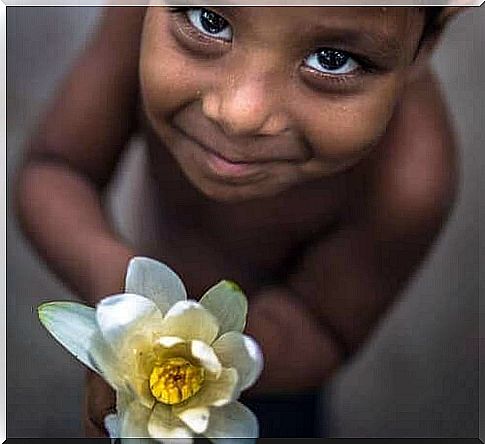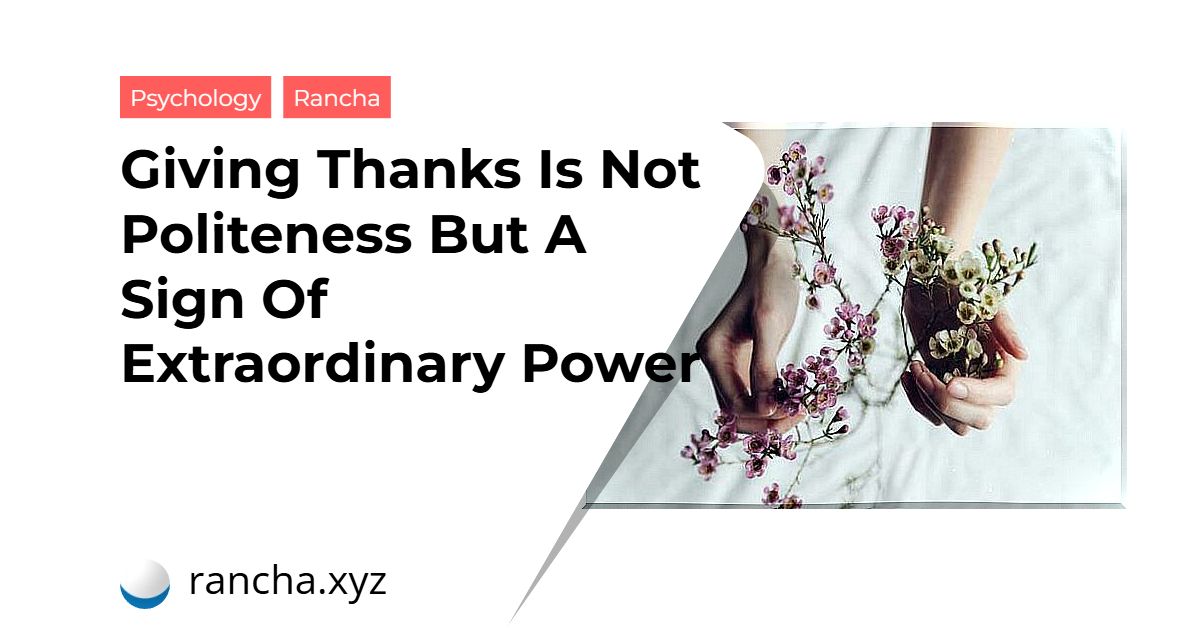Thanking, for many, is an almost automatic gesture of courtesy and politeness. We appreciate it when we receive a gift, when someone does a favor, or when people have a kind attitude. For the rest, it doesn’t seem to be important to say thank you for anything. Gratitude, then, was reduced to some specific circumstances, basically of a social nature.
Even in these punctual situations where it is necessary to thank, gratitude is often not felt from the bottom of the heart. Only in extreme cases do we say this “thank you” with complete conviction. And after a while the feeling dissipates.
There will be people who think that this is not right. It’s just that: saying “thank you” at the right time and, if possible, returning the favor, or the attention you’ve been given. What else? While in today’s world this is true, by doing so we are actually trivializing gratitude. We forget that this is an extraordinary strength that contributes to better mental health and that we often waste it.
Thanking is much more than saying “thank you”
Gratitude is a joyful feeling. Even if the thanks are due to something someone did in a sad moment. In these cases, thanking leads us to a pleasant fact that fills us with satisfaction. In fact, the word “gratitude” comes from “grace”. And “grateful” translates as something that makes us feel happy or complacent.

We thank someone when there is an awareness that we receive more than we give. Therefore, the feeling immediately arises that a gain has been made. So, spontaneously comes the need to thank you for this “extra” we received.
Gratitude implies not only a form of courtesy, but also an experience of satisfaction, joy and, why not, happiness. Who is grateful is happy. And happier are those who are aware of the multitude of reasons they have to be grateful.
Why is it difficult for many people to say thanks?
There are many people who feel they have nothing to thank others for. They list in detail the times they needed something and didn’t receive the expected help. Or the infinite number of situations in which they gave something to others and were not reciprocated. Your balance between what you give and what you receive always tilts the opposite of gratitude.
There is probably a logic where others are always in debt. The person expects more from others than they can give and so, obviously, he is always frustrated. He thinks they could have “given more”. So why thank you?

Those who think like that are usually very spoiled people or people whose ego has been very exalted. When there is a great deal of narcissism, what others offer of themselves will never be enough for them, the same thing life gives them. They always feel they deserve more, and obviously there are many more reasons to complain than to be grateful.
gratitude has power
Appreciation is something given to another, or something abstract. It belongs to the world of giving, not receiving. But, as we said earlier, just being in this posture of gratitude implies a taste, a satisfaction, a kind of happiness. It also ennobles the heart.
If it weren’t for other people’s actions, we would probably not even be alive. If we are, it’s thanks to a mother who gave us birth, who suffered the pains of childbirth to give birth and who preserved our life when we couldn’t take care of ourselves. It doesn’t matter if she wasn’t ready to be a mother herself, or if she could have done it better. Just the fact of motherhood already implies an offer. They also count the people who helped us to be born, to grow, not to die in those first vulnerable years.

From then on, there are teachers who instructed us, playmates, maybe friends who listened to us, loves that maybe gave themselves for us, maybe people who trusted in our own work. Our daily life is possible thanks to many people, but sometimes we don’t realize it. We are not able to see your great contribution. Instead, we focus on what they don’t do.
Living gratefully is living very close to happiness. More than a virtue, or a value, it is an attitude towards life. You can only be grateful if we are humble. If we understand that no one owes us anything, nor is he obligated to please us. When we understand this, we take a big step forward.
Gratitude changes lives.
 rancha.xyz Be free to choose their own route to self-knowledge, health and balance of body and soul.
rancha.xyz Be free to choose their own route to self-knowledge, health and balance of body and soul.




